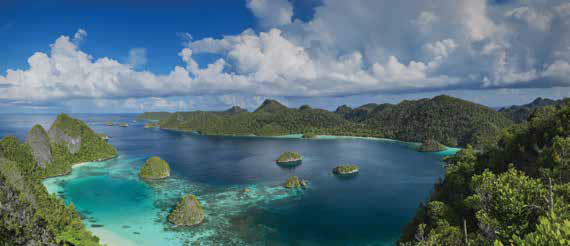To support your global practice, ACC Docket offers country-specific fun facts from your peers who’ve been there — literally.

Economy
Population
Corruption
Additional Resources
GDP (PPP)
US$30.19 billion (2017 est.)
8.251 million (2018 est.)
According to Transparency International’s 2018 Corruption Perception Index, Papua New Guinea ranks 28 on a scale of zero (highly corrupt) to 100 (very clean).
The small nation of Papua New Guinea, dubbed the “Last Frontier” by many, lies north of Australia. The country shares a land border with Indonesia’s Province of West Papua on the island of New Guinea. Some say you have not seen the world until you’ve visited Papua New Guinea: It is home to the popular bird of paradise and other native animal and plant species found nowhere else in the world. It also houses some of the world’s untouched rainforests. Papua New Guinea’s rugged terrain, rich in minerals, petroleum agriculture, timber, and fishery resources, supports a population dispersed across the country.
Papua New Guinea gained its independence from Australia in 1975 and has since governed itself with a Westminster government system with the prime minister as head of the executive arm of government and the Queen of England as its head of state. It has a population of just over eight million people. The nation mainly exports raw materials in the form of minerals, petroleum, and timber, and it has recently started exporting finished products (mainly food such as biscuits and tinned fish and meat) to other Pacific Island nations.
Papua New Guinea’s legal system is autochthonous, with its origins closely attached to the Australian and British legal system. Many Papua New Guineans still abide by their native culture, customs, and traditions. However, many traditional practices have been outlawed with the introduction of Western law and religions like Christianity. Customary law is accepted as law in Papua New Guinea and applies where it is practiced.
As the in-house lawyer, you must be well versed with the laws governing the industry you are employed in as well as the customs and traditions of locals in your area. Knowledge of the local customs and traditions can get you a long way in Papua New Guinea.
Papua New Guinea has over 800 tribes in its 22 provinces and boasts to have over 800 languages. However, the official languages are English, Tok Pisin (pidgin), and Motu, with the language of instruction and education being English.
From the outside, one would see it as a challenge governing a nation with over 800 tribes and languages. However, Papua New Guinea has adopted the slogan “Unity in Diversity.” This is evident when Papua New Guinea co-hosted the Rugby League World Cup with Australia and New Zealand in 2017 in Port Moresby. On game days, you could see the patriotism all over Port Moresby as people wore their national colors (black, yellow, and red) and packed the National Football Stadium to cheer on the Kumuls (Papua New Guinea’s national rugby league team).
Please visit Papua New Guinea when you next travel the world. You won’t be disappointed.




